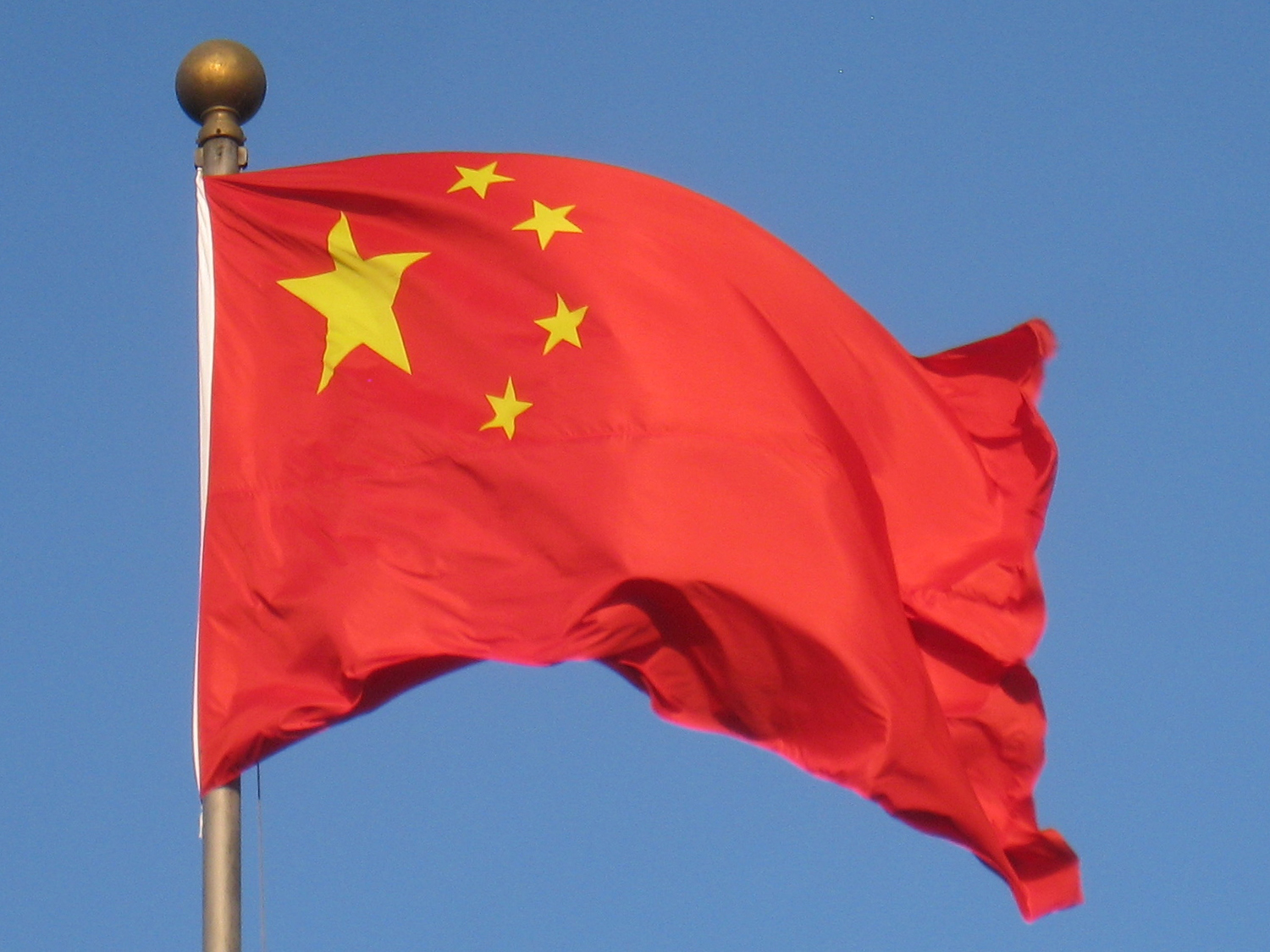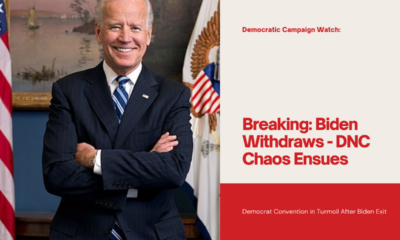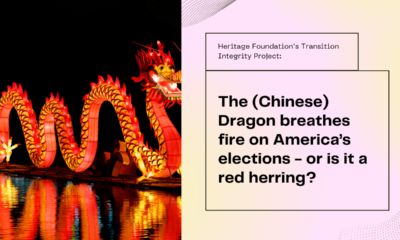Civilization
Combating Slavery in China
Communist China continues to attack and force Uyghurs into forced labor to eliminate their culture as somehow non-Chinese.

A report published on February 14 revealed that the Chinese Communist Party is continuing to target and enslave Uyghurs through an expansion of forced labor in China. Published by The Jamestown Foundation and authored by Beijing-banned academic Adrian Zenz, the report concluded, “Xinjiang currently operates the world’s largest system of state-imposed forced labor.”
The atrocities that the Chinese Communist Party perpetrates against members of ethnic and religious minority groups in Xinjiang have come to light in recent years, including mass imprisonment of more than 1 million civilians, forced sterilization, separation of children from their families, torture, abuse, restrictions on religious freedom, and forced labor.
While most of China is composed of the Han ethnic group, more than half of the population of the northwestern region of Xinjiang consists of ethnic minorities (predominately Muslim Uyghurs) – who the Party has long sought to control.
In 2021, then-Secretary of State Mike Pompeo determined that the Chinese Communist Party was committing genocide and crimes against humanity in Xinjiang – a determination that Secretary of State Antony Blinken upheld.
Though the horrific methods the Party wields to subjugate these minority groups vary, the objective remains the same.
“It’s a strategy of control and assimilation,” Zenz told The New Yorker. “And it’s designed to eliminate Uyghur culture.”
Forced labor systems in Xinjiang – punishable by detention for non-compliance – are a key part of removing resistance and opposition to the CCP’s absolute authority and power. In his report, Zenz pointed to two dominant systems used to target Uyghurs and other ethnic groups in Xinjiang.
In one system, detainees in China’s infamous re-education camps received coercive skills training before receiving coercive work placement. Detainees who were viewed as less problematic received a sentence of forced labor, while others, such as prominent business and intellectual figures, were sentenced to lengthy prison terms.
Though it appears this system is no longer active, Zenz noted that the Chinese Communist Party is instead expanding its “Poverty Alleviation Through Labor Transfer” program. Zenz described this policy as “a non-internment state-imposed forced labor mobilization system.”
A Chinese academic research report, the Nankai Report, described the re-education camps as a “drastic short-term measure” and the labor transfers as a long-term “method to reform, meld and assimilate” Uyghurs.
But the bottom line is clear. “Xinjiang’s recent policy changes have rendered forced labor less visible and more challenging to conceptualize,” Zenz wrote. “Uyghur forced labor is becoming both more prevalent and more insidious.”
The United States must take notice of these findings that disguise coerced labor as voluntary.
In 2021, Congress passed into law the bipartisan Uyghur Forced Labor Prevention Act. The law prohibits goods made by the Chinese Communist Party’s forced labor programs from entering the U.S. market. However, numerous products tied to slave labor continue to evade legal protections and arrive in American households.
Chairman of the House Select Committee on the CCP Rep. Mike Gallagher and Ranking Member Rep. Raja Krishnamoorthi wrote a letter to Secretary of Homeland Security Alejandro Mayorkas that outlined some of the key challenges to effectively enforcing this consequential law.
First, the members wrote, “Companies transfer forced laborers from [Xinjiang] to other regions in the People’s Republic of China, complicating [U.S. Department of Homeland Security] enforcement of the presumptive ban on forced labor products from [Xinjiang].” Additionally, “A second factor undermining enforcement of the [law] is Beijing’s increased transshipment of forced labor products to the United States through third countries.”
Last week, to further augment and strengthen U.S. efforts in the fight against human rights abuses in Xinjiang, the U.S. House of Representatives overwhelmingly passed the bipartisan and bicameral Uyghur Policy Act. This legislation, led by Rep. Young Kim, will authorize the State Department to appoint a Special Coordinator for Uyghur issues, direct the U.S. Agency for Global Media to distribute information on Uyghur genocide, and authorize support for Uyghur human rights activists.
As the Chinese Communist Party continues to target Uyghurs and members of other ethnic and religious minority groups in China, the United States must strengthen the enforcement of the Uyghur Forced Labor Prevention Act and resolve to pass the Uyghur Policy Act into law.
This article was originally published by RealClearPolicy and made available via RealClearWire.
Ambassador Callista L. Gingrich is President and Chief Executive Officer of Gingrich 360, a multimedia production and consulting company based in Arlington, Virginia.
She is a former United States Ambassador to the Holy See, confirmed by the U.S. Senate on October 16, 2017, sworn in by President Donald Trump and Vice President Mike Pence on October 24, 2017, and credentialed by Pope Francis on December 22, 2017. Gingrich served in Rome as ambassador until January 20, 2021.
During her tenure, Ambassador Gingrich worked to advance and defend international religious freedom, combat human trafficking, provide humanitarian assistance, and support the role of women religious around the world.
Gingrich is a New York Times best-selling author. She is the author of the Ellis the Elephant children’s American history series and co-author of Rediscovering God in America. Ambassador Gingrich is also the producer of nine documentary films including, “The First American,” “Nine Days that Changed the World,” and “Ronald Reagan: Rendezvous with Destiny.”
Gingrich graduated cum laude from Luther College in Decorah, Iowa with a Bachelor of Arts in Music in 1988. In 2018, Ambassador Gingrich was awarded an honorary doctorate from Ave Maria School of Law in Naples, Florida.
In 2020, she received the title Dame Grand Cross of the Order of Pope Pius IX by Pope Francis, the highest distinction conferred by the Holy See on laypersons, in recognition of her contributions to the Church and society.
And in 2023, she received a Luther College Distinguished Service Award for admirable service to society.
Ambassador Gingrich serves as the President of the Gingrich Foundation. She also serves as a Member of the Basilica of the National Shrine of the Immaculate Conception Board of Trustees, a Member of the Ave Maria School of Law Board of Governors, and a Member of the Richard Nixon Foundation Board of Directors.
Previously, Gingrich served as a congressional aide in the U.S. House of Representatives and as the President and CEO of Gingrich Productions. She sang for two decades with the Choir of the Basilica of the National Shrine of the Immaculate Conception in Washington, D.C., and played French horn with the City of Fairfax Band in Fairfax, Virginia for over three decades.
Ambassador Gingrich is married to Speaker Newt Gingrich and resides in Naples, Florida and McLean, Virginia.
-

 Executive4 days ago
Executive4 days agoSecret Service chief gets no solace
-

 Civilization5 days ago
Civilization5 days agoBiden drops out of race
-

 Executive2 days ago
Executive2 days agoWaste of the Day: Louisville Taxpayers Pay Nearly $600,000 For Empty Building’s Maintenance, Security
-

 Guest Columns4 days ago
Guest Columns4 days agoFear Itself: Democrats’ Favorite Strategy Caused Their Current Chaos
-

 Executive3 days ago
Executive3 days agoWhere is Joe Biden – or Jill?
-

 Executive1 day ago
Executive1 day agoWaste of the Day: Throwback Thursday: Cities Used Crime Prevention Funds on Soccer Games, Paper Shredding
-

 Civilization4 days ago
Civilization4 days agoBuild Iron Dome in the United States To Prepare for Israel’s Worst Day
-

 Executive2 days ago
Executive2 days agoFacile and politically motivated suggestions














